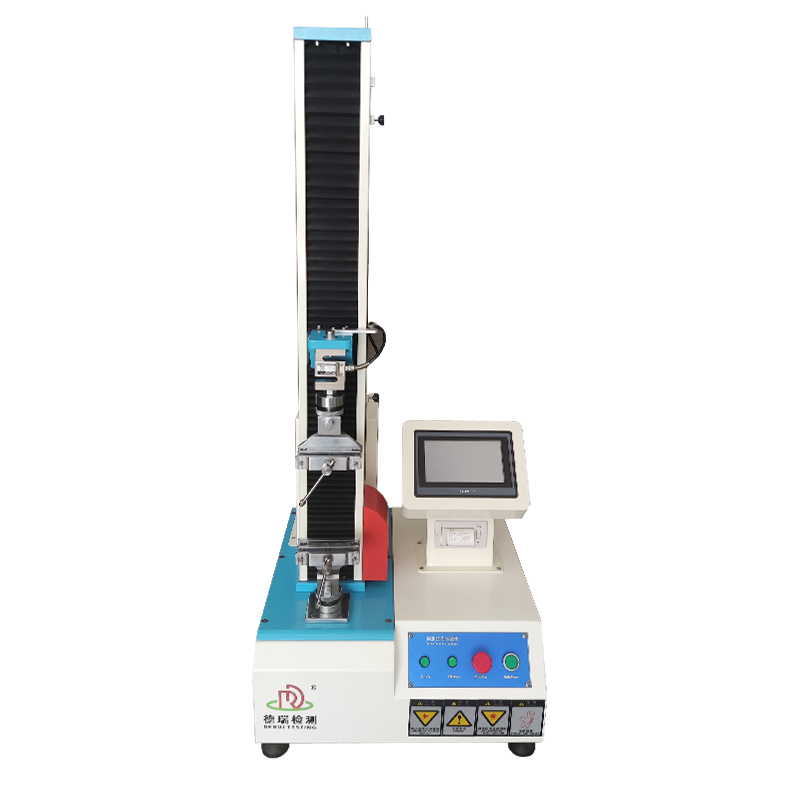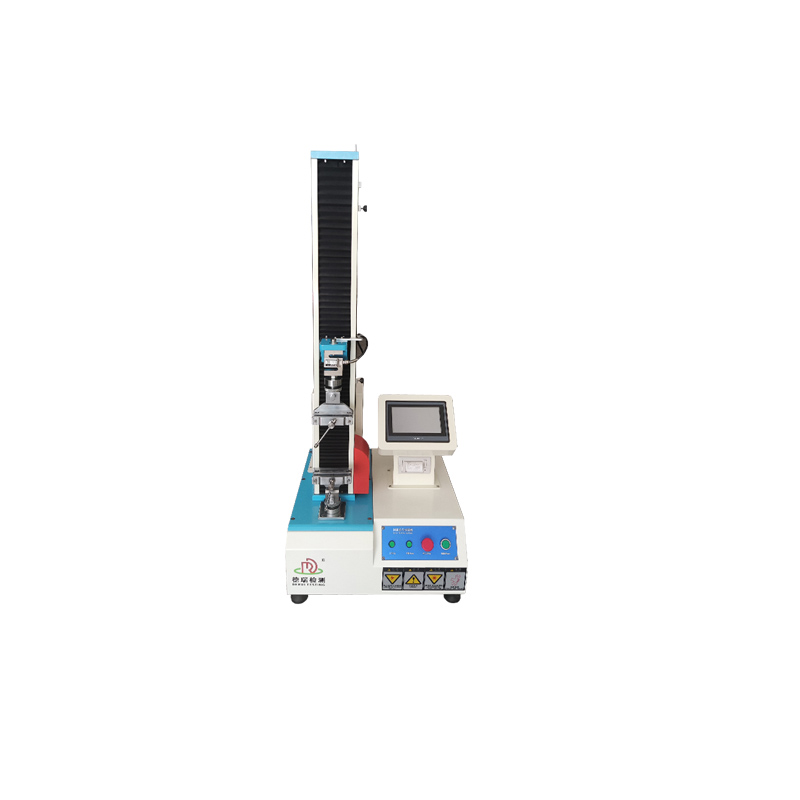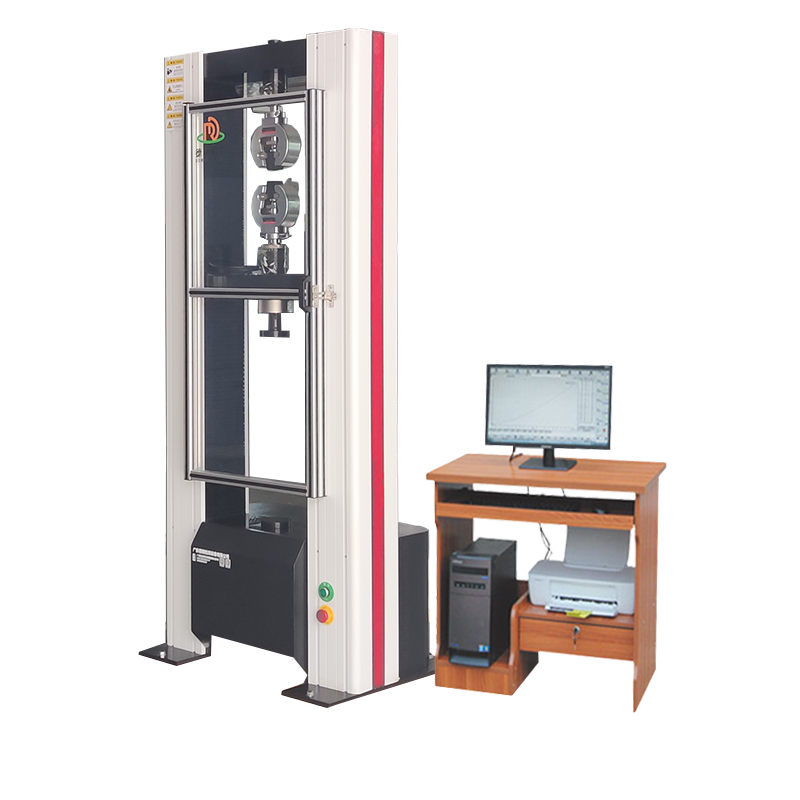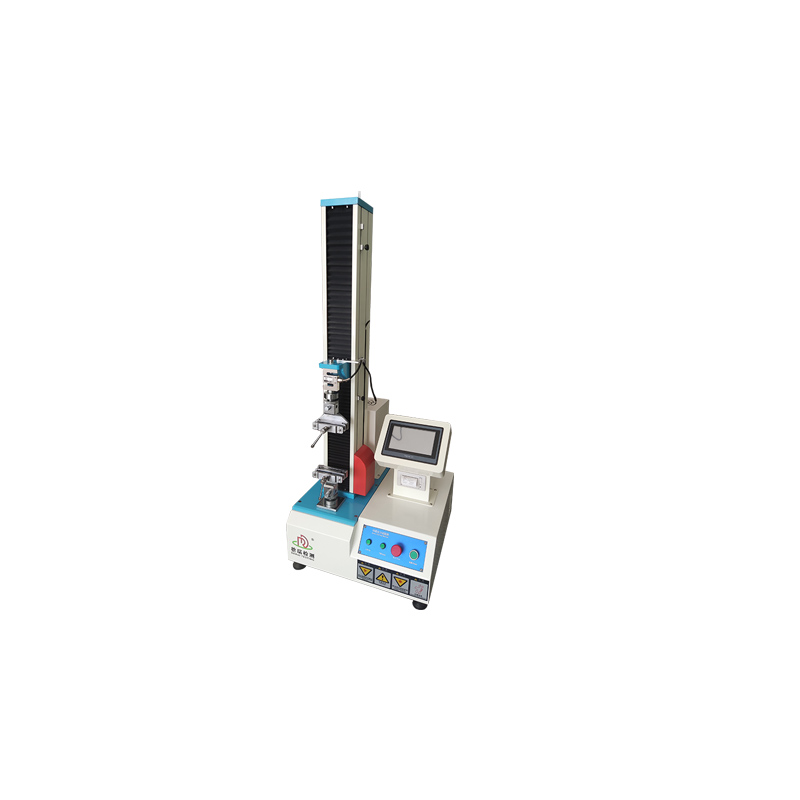Silicone Rubber Tensile Testing Machine
2300.0 USD ($)/Unit
Product Details:
- Phase Single Phase
- Color White
- Features Digital display, overload protection, emergency stop
- Speed Range 10-500 mm/min
- Resolution 0.01 mm
- Stroke Length 800 mm
- Screw Size Leadscrew 20 mm
- Click to view more
X
Silicone Rubber Tensile Testing Machine Price And Quantity
- 2300.0 USD ($)/Unit
- Adjustable (up to 200 kgf)
- 1 Unit
- Up to 200 kgf
- USB and RS232
- Tension & Elongation
- Adjustable grips for silicone rubber specimens
- Overload and overtravel protection
- Meets ASTM D412 & ISO 37
- LED digital display
- ±1%
- Data analysis and report generation software included
Silicone Rubber Tensile Testing Machine Product Specifications
- Microprocessor based digital controller
- High precision load cell
- Mild Steel with powder coat finish
- 5-200 Kg
- 10C - 40C
- Digital display, overload protection, emergency stop
- 10-500 mm/min
- Single Phase
- White
- 800 mm
- Leadscrew 20 mm
- 0.01 mm
- Tensile Testing Machine
- 10-500 mm/min
- Tensile Testing
- 1.5 kW
- Automatic
- 1.5 kW
- 220V AC
- Approx. 120 kg
- Electric
- 450*400*1360 Millimeter (mm)
- 0.5%
- 5-200 kg
- 50 Hz
- USB and RS232
- Tension & Elongation
- Adjustable grips for silicone rubber specimens
- Overload and overtravel protection
- Meets ASTM D412 & ISO 37
- LED digital display
- ±1%
- Data analysis and report generation software included
Silicone Rubber Tensile Testing Machine Trade Information
- Cash in Advance (CID)
- 50 Unit Per Month
- 10 Days
- Contact us for information regarding our sample policy
- All India
Product Description
|
Item |
Parameters |
|
Load Capacity |
5-200kg |
|
Load cell brand |
China brand |
|
Motor |
90W OPG adjustable-speed motor |
|
Drive |
90W drive |
|
Screw |
Screw |
|
Control Way |
LED with built-in printer |
|
Speed |
Adjustable speed 50-300mm/min |
|
Max.Stroke |
900mm (including clamps) |
|
Load Resolution |
1/250,000 |
|
Load Accuracy |
0.5% |
|
Unit Switching |
gf/kgf/N//kN/LBf/T |
|
Dimension |
(L*W*H) 450*400*1360mm |
|
Weight |
Approx. 45KG |
|
Power |
1 AC 220V |
FAQs of Silicone Rubber Tensile Testing MachineStructural Composition
Q1. What is the main purpose of this machine?
A1. It is primarily used for testing the tensile strength and fracture elongation rate of silicone rubber materials.
Q2. What is the typical test accuracy?
A2. The test accuracy is usually up to 0.5% within specified ranges.
Q3. Can the testing speed be adjusted?
A3. Yes, the testing speed can be adjusted according to standards or specific requirements.
Q4. Which types of silicone rubber materials are suitable for testing?
A4. The machine is suitable for testing both solid and liquid silicone rubber materials, as well as other types.
Q5. Is calibration required?
A5. Yes, calibration is recommended to ensure the accuracy and reliability of test results.
Q6. Is the operation simple?
A6. The operation is simple, typically featuring an intuitive control interface and user-friendly software.
Q7. Can the test data be exported?
A7. Yes, the test data can be exported into formats such as Excel or PDF for further analysis.
Q8. Is the testing process safe?
A8. Yes, the machine is designed with safety features to ensure safe operation during testing.
Q9. Do additional fixtures need to be provided?
A9. Usually, the machine comes with standard fixtures, but optional additional fixtures can be provided for specific testing needs.
Q10. Does the supplier offer maintenance and technical support?
A10. Yes, comprehensive maintenance and technical support to ensure optimal performance.
Tell us about your requirement

Price:
Quantity
Select Unit
- 50
- 100
- 200
- 250
- 500
- 1000+
Additional detail
Mobile number
Email








 English
English Spanish
Spanish French
French German
German Italian
Italian Chinese (Simplified)
Chinese (Simplified) Japanese
Japanese Korean
Korean Arabic
Arabic Portuguese
Portuguese